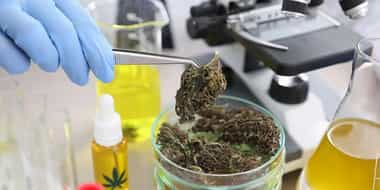
Jul 3, 2025
Blog biotechnology From Gut to Growth: The Rise of Microbiome Sequencing
In recent years, the scientific community has made remarkable strides in understanding the human microbiome, the vast array of microorganisms, including bacteria, fungi, and viruses, that inhabit our bodies. These tiny entities play a crucial role in our health, influencing everything from digestion to immune response. As we delve deeper into this intricate ecosystem, microbiome sequencing stands out as a revolutionary tool, offering groundbreaking insights into our health.
Microbiome sequencing is the genetic analysis of microbial communities in each environment, most commonly the human gut. Unlike traditional culture methods that grow microbes in labs, sequencing captures the entire genomic signature of the microbial population, offering a comprehensive snapshot of who’s there—and what they’re doing.
Key sequencing methods include:
The global microbiome sequencing market is on an impressive growth trajectory. According to BCC Research analysis, it is expected to expand from $1.5 billion in 2024 to $3.7 billion by 2029, growing at a CAGR of 19.3%. This surge is driven by:

Surge in Next-Generation Sequencing (NGS) Adoption
Next-generation sequencing has become the engine powering microbiome research. These platforms allow for the high-throughput, cost-effective analysis of entire microbial genomes, enabling detailed profiling of bacterial, viral, and fungal communities across various ecosystems.
Personalized and Preventive Healthcare
As science uncovers the impact of microbiota on metabolic, neurological, and autoimmune conditions, microbiome analysis is becoming integral to personalized healthcare strategies. From gut health panels to microbial signatures for cancer diagnostics, the clinical utility of sequencing continues to expand.
Agricultural and Environmental Impact
Microbiome sequencing plays a transformative role in sustainable agriculture and climate solutions. Scientists can develop biofertilizers by studying soil and plant-associated microbes, improve crop resilience, and reduce reliance on chemical pesticides.
The global microbiome sequencing market is expected to grow from $1.5 billion in 2024 and is projected to reach $3.7 billion by the end of 2029, at a compound annual growth rate (CAGR) of 19.3% during the forecast period of 2024 to 2029.
3 . Therapeutic Development
While the market outlook is promising, the microbiome sequencing field faces notable challenges:
However, sequencing platform evolution, growing research funding, and AI-powered analytics offer strong tailwinds for overcoming these barriers.
Emerging trends suggest a future where microbiome sequencing is integrated with AI, machine learning, and multi-omics (such as metabolomics and proteomics) to provide richer, real-time insights. Personalized gut health reports, precision probiotics, and microbiome-based drug design may soon be part of mainstream healthcare.
Microbiome sequencing has evolved from a research tool into a key innovation in medicine, agriculture, nutrition, and environmental science. This technology enables personalized care, sustainable practices, and precise diagnostics by exploring the complex relationships between microbes and human health.
Sequencing and data analytics advancements offer significant potential for improving lives and ecosystems. Investing in microbiome sequencing represents a unique opportunity for biotech, pharmaceuticals, and agriculture stakeholders to lead the next wave of life science innovation.

Amrita Kumari is a Senior Executive Email Marketer at BCC Research, with a bachelor’s degree in computer applications. She specializes in content creation and email marketing.

What if decoding a single cell, interpreting an entire genome, or identifying a ...

The field of biopharmaceuticals continues to evolve rapidly, and one of the most...

Botanical and plant-derived drugs are increasingly shaping modern pharmaceutical...

We are your trusted research partner, providing actionable insights and custom consulting across life sciences, advanced materials, and technology. Allow BCC Research to nurture your smartest business decisions today, tomorrow, and beyond.
Contact UsBCC Research provides objective, unbiased measurement and assessment of market opportunities with detailed market research reports. Our experienced industry analysts assess growth opportunities, market sizing, technologies, applications, supply chains and companies with the singular goal of helping you make informed business decisions, free of noise and hype.